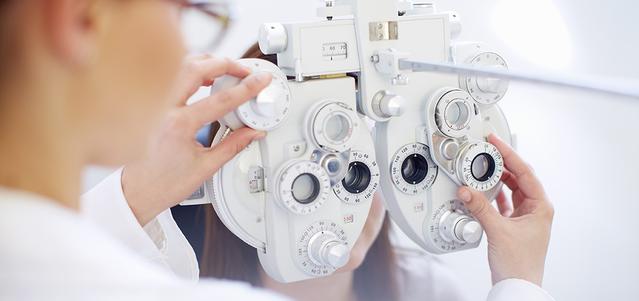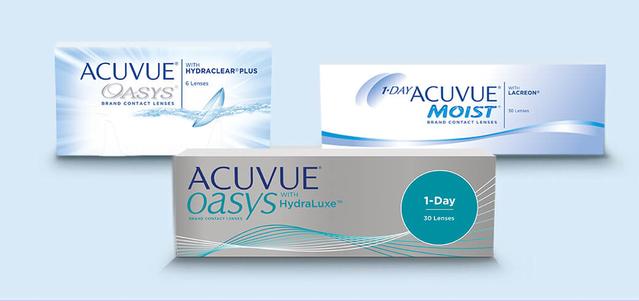MODERN SLAVERY ACT
CALIFORNIA TRANSPARENCY IN SUPPLY CHAINS ACT & UNITED KINGDOM MODERN SLAVERY ACT STATEMENT
This statement explains the steps that we have taken to eliminate slavery and human trafficking from our supply chain. Some countries have implemented legislation which require certain businesses to provide public disclosures in this regard. This legislation includes The California Transparency in Supply Chains Act of 2010 and Section 54, Part 6 of the United Kingdom Modern Slavery Act of 2015. This initial disclosure is intended to provide our customers with information that will allow them to make more informed decisions about the goods they are purchasing.
Company Structure and Business:
Caring for the world, one person at a time, inspires and unites the people of Johnson & Johnson. We embrace innovation—bringing ideas, products and services to life to advance the health and well-being of people around the world. We believe in collaboration, and that has led to breakthrough after breakthrough, from medical miracles that have changed lives, to the simple consumer products that make every day a little better. Our over 127,000 employees in 60 countries are united in a common mission: To help people everywhere live longer, healthier, happier lives. More information on our current Company Structure can be found at https://www.jnj.com/healthcare-products.
Our Supply Chain:
The Johnson & Johnson Supply Chain takes an end-to-end view of our business starting with a close collaboration with Research & Development and Commercial colleagues to safely and efficiently plan, source, make and deliver a high-quality, reliable supply of all of the products in the Johnson & Johnson portfolio. Our Supply Chain is also responsible for making products at our own Johnson & Johnson facilities and through external partners. As a result, our supply chain is global and complex. We purchase goods and services from thousands of suppliers around the world. The success of our business depends on our ability to collaborate with suppliers that not only provide the highest quality products and services, but are philosophically and strategically aligned with our commitment to our social and environmental responsibilities. More information on our supply chain can be found at https://www.jnj.com/partners.
Our Policies:
Johnson & Johnson is committed to ensuring that it conducts its business worldwide with respect for human rights and in compliance with all applicable laws and fair labor practices, as evidenced by our Statement on Human Rights (https://www.jnj.com/about-jnj/company-statements/statement-on-human-rights) , Human Trafficking Policy (https://www.jnj.com/about-jnj/company-statements/human-trafficking-policy) and our Responsibility Standards for Suppliers (https://www.jnj.com/caring/citizenship-sustainability/supplier-standards).
Managing the human rights considerations in our supply base is a critical and complex undertaking. Johnson & Johnson takes the following steps to manage our supply chain relationships responsibly:
- Verification/Due Diligence: Based on supplier risk prioritization, Johnson & Johnson evaluates prospective suppliers during supplier selection and periodically thereafter based their role in our supply chain. These evaluations are centered around ethics, employee health and safety, and environmental protection elements. Prioritization is mainly based on the supplier category. External manufacturing sites and active pharmaceutical ingredients supplier sites are high on the priority list and receive the most detailed, site-level assessments. Assessment of other suppliers is conducted initially at their corporate level, and may be conducted for certain factors, with emphasis on all our strategic suppliers and certain R&D and chemicals suppliers. The primary driver in determining the type and frequency of assessment or audit is the level of supplier Worldwide Environmental, Health, Safety & Sustainability (EHS&S) risk. An initial review considers supplier location and the products or services it provides. Suppliers rated as low priority require no further immediate action. Those determined to be high priority are evaluated using a formal EHS&S risk assessment and assigned ratings of high, medium or low.
- Audit: Johnson & Johnson currently conduct audits of select suppliers who impact our quality and financial systems based on internal risk assessments. However, these audits are not designed to explicitly confirm compliance with company standards in the areas of slavery and human trafficking. These audits are not currently conducted via an independent unannounced audit. We are in the process of implementing an enhanced audit program which will address this area in partnership with one or more third party firms.
- Certification: Our standard contracts with suppliers require compliance with all applicable laws. In addition, we are in the process of enhancing our existing contractual key terms and conditions to strengthen our expectations of our suppliers regarding human trafficking and slavery and have recently updated and deployed our Responsibility Standards for Suppliers (https://www.jnj.com/caring/citizenship-sustainability/supplier-standards). We do not currently require periodic certification to confirm compliance and instead rely on assessments and audits to provide assurance.
- Internal Accountability: Our Code of Business Conduct (https://www.jnj.com/code-of-business-conduct), Statement on Human Rights (https://www.jnj.com/about-jnj/company-statements/statement-on-human-rights), Human Trafficking Policy (https://www.jnj.com/about-jnj/company-statements/human-trafficking-policy) and our Responsibility Standards for Suppliers (https://www.jnj.com/caring/citizenship-sustainability/supplier-standards) describe our commitment to human rights. Violation of company policies and procedures is reportable through our company’s Credo Hotline (https://secure.ethicspoint.com/domain/media/en/gui/28704/index.html). All such reports of allegations of violations will be promptly investigated and, if the result of the investigation indicates that corrective action is required, the company will decide what steps to take to rectify any problem and/or avoid the likelihood of its recurrence. Our company’s Credo Hotline (https://secure.ethicspoint.com/domain/media/en/gui/28704/index.html) is available to anyone to report a concern about the business conduct of our employees or suppliers or to ask questions about our business conduct policies. At the industry level, we engage with different business organizations – such as the Consumer Goods Forum (CGF), the Business for Social Responsibility (BSR) Human Rights Working Group (HRWG) and the Pharmaceutical Supply Chain Initiative (PSCI). In January 2016, the CGF Board approved its first resolution on social sustainability specifically addressing the issue of forced labor.
- Training: Compliance training is required of all employees, and compliance with communication, training and execution of our Code of Business Conduct (https://www.jnj.com/code-of-business-conduct) is audited. Each business and all senior leaders must certify compliance with our Code of Business Conduct (https://www.jnj.com/code-of-business-conduct) annually, and results are reviewed by the Corporate Secretary’s Office, Internal Audit and the Board’s Regulatory, Compliance & Government Affairs Committee., A global data system to gather enterprise-wide data is under development. We periodically deploy updated training on human trafficking and slavery, particularly with respect to mitigating risks within supply chains of products, to existing company employees who have direct responsibility for supply chain management and will make this training mandatory for new-hires and existing employees in the supply chain management area.
Our actions as described above support the Johnson & Johnson long-term commitment to respect the human rights of all people and to improve the quality of life in the communities we serve.
Tom Lavery
Chairman
Johnson & Johnson Medical Limited









